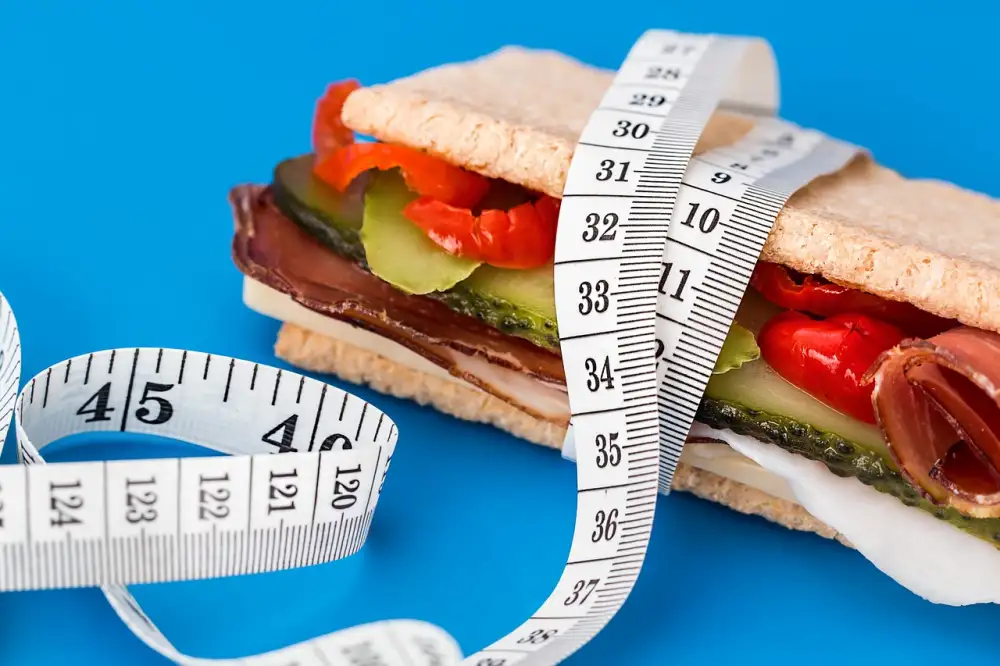Trim Down with Tasty Weight Loss Meals: Unlocking the Secrets to Healthy Eating

- Importance of a Balanced Diet for Weight Loss
- Incorporating Lean Proteins in Weight Loss Meals
- Including Fiber-Rich Foods for Satiety and Digestion
- Choosing Healthy Fats for Nutritional Benefits
- Incorporating Whole Grains for Sustained Energy
- Emphasizing Portion Control for Effective Weight Loss
- Incorporating Fruits and Vegetables for Essential Nutrients
- Hydration and its Role in Weight Loss
- Healthy Snack Options for Weight Loss
- Meal Planning and Prepping Tips for Successful Weight Loss
When it comes to achieving weight loss goals, a crucial aspect is the food we consume. Weight loss meals play a vital role in helping us shed those extra pounds and achieve a healthier lifestyle. By making smart choices and incorporating nutritious ingredients, we can create delicious meals that not only promote weight loss but also provide essential nutrients for our bodies. In this article, we will explore the secrets to healthy eating and how you can trim down with tasty weight loss meals. So let's dive in and unlock the path to a slimmer, healthier you!
Importance of a Balanced Diet for Weight Loss
A balanced diet is crucial for successful weight loss. It provides the body with all the necessary nutrients while promoting a calorie deficit. A well-balanced meal plan includes a variety of food groups, such as lean proteins, fruits and vegetables, whole grains, and healthy fats. This ensures that you get essential vitamins, minerals, and antioxidants while keeping your hunger at bay. By incorporating a balanced diet into your weight loss journey, you can achieve sustainable results and improve overall health.
Incorporating Lean Proteins in Weight Loss Meals
Incorporating lean proteins in weight loss meals is essential for several reasons. Firstly, proteins are known to be the building blocks of our body and play a crucial role in repairing and building tissues. Secondly, they help in boosting metabolism, which aids in burning calories more efficiently. Lastly, proteins provide a feeling of fullness and satiety, reducing the chances of overeating. Include sources like skinless chicken breast, fish, tofu, beans, and Greek yogurt to ensure a healthy balance of nutrients while cutting down on calories.
Including Fiber-Rich Foods for Satiety and Digestion
Including fiber-rich foods in your weight loss meals is essential for promoting satiety and aiding digestion. Fiber adds bulk to your meals, making you feel fuller for longer periods of time. This can help prevent overeating and unnecessary snacking. Additionally, fiber helps regulate bowel movements, preventing constipation and promoting a healthy digestive system. Incorporate foods such as whole grains, legumes, fruits, and vegetables into your meals to increase your fiber intake and support your weight loss journey.
Choosing Healthy Fats for Nutritional Benefits
When it comes to weight loss, not all fats are created equal. While it's important to limit your intake of unhealthy fats, such as saturated and trans fats, incorporating healthy fats into your diet can actually aid in weight loss. Healthy fats, like those found in avocados, nuts, and olive oil, provide essential nutrients and promote feelings of satiety. They also help the body absorb fat-soluble vitamins and support brain health. So don't shy away from including these nutritious fats in your weight loss meals!
Incorporating Whole Grains for Sustained Energy
Incorporating whole grains into your weight loss meals is a smart choice for sustained energy throughout the day. Unlike refined grains, whole grains are packed with fiber, vitamins, and minerals that can help regulate blood sugar levels and keep you feeling fuller for longer. Opt for whole grain options such as brown rice, quinoa, whole wheat bread, and oats to add nutritional value to your meals. These complex carbohydrates provide a slow release of energy, preventing spikes in blood sugar and helping you stay satisfied until your next meal. By including whole grains in your weight loss plan, you'll not only nourish your body but also enjoy the benefits of increased energy levels and improved digestion.
Emphasizing Portion Control for Effective Weight Loss
Emphasizing portion control is crucial for effective weight loss. It's important to be mindful of the quantity of food we consume. Start by using smaller plates and bowls to trick your mind into thinking you're eating more. Avoid eating straight from the package, as it's easy to lose track of how much you've eaten. Measure your portions using measuring cups or a food scale. Listen to your body's hunger and fullness cues, and stop eating when you feel satisfied, not overly full. By practicing portion control, you can still enjoy your favorite foods while achieving your weight loss goals.
Incorporating Fruits and Vegetables for Essential Nutrients
Incorporating a variety of fruits and vegetables into your weight loss meals is crucial for obtaining essential nutrients. Fruits and vegetables are packed with vitamins, minerals, and antioxidants that support overall health and aid in weight loss. They are low in calories but high in fiber, which helps you feel full and satisfied without consuming excess calories. Include a colorful array of fruits and vegetables in your meals to ensure you're getting a wide range of nutrients while keeping your calorie intake in check.
Hydration and its Role in Weight Loss
Hydration plays a crucial role in weight loss. Drinking an adequate amount of water helps to boost metabolism and promote fat burning. It also helps to suppress appetite and reduce calorie intake. Additionally, staying hydrated keeps the body functioning optimally, aiding digestion and preventing water retention. Aim to drink at least 8 glasses of water per day and consider incorporating hydrating foods like cucumbers and watermelon into your meals for added hydration benefits. Stay hydrated to support your weight loss journey!
Healthy Snack Options for Weight Loss
When it comes to weight loss, choosing healthy snacks is just as important as selecting nutritious meals. Snacking can help curb cravings and keep hunger at bay between meals. Opt for snacks that are low in calories but high in nutrients, such as fresh fruits, raw vegetables with hummus, Greek yogurt with berries, or a handful of nuts. These options provide essential vitamins, minerals, and fiber while keeping you satisfied. Avoid sugary and processed snacks that can derail your weight loss efforts. Remember, smart snacking can contribute to your overall success in achieving your weight loss goals.
Meal Planning and Prepping Tips for Successful Weight Loss
1. Plan your meals in advance to avoid impulsive and unhealthy food choices.
2. Include a variety of nutritious foods to ensure you get all the essential nutrients.
3. Prep ingredients ahead of time to save time during busy weekdays.
4. Cook large batches of healthy meals and freeze them for quick and convenient options.
5. Use portion control containers or measuring cups to ensure you're not overeating.
6. Keep healthy snacks readily available, such as pre-cut fruits and vegetables or homemade trail mix.
7. Invest in quality food storage containers to keep your meals fresh and organized.
8. Experiment with different cooking methods like grilling, baking, or steaming for healthier alternatives to frying.
9. Stay consistent with your meal plan but allow flexibility for occasional indulgences to avoid feeling deprived.
10. Stay motivated by tracking your progress, celebrating small victories, and seeking support from friends or online communities.
By following these meal planning and prepping tips, you can create a sustainable and enjoyable weight loss meal plan that will help you achieve your goals while still enjoying delicious and nutritious meals.
In conclusion, creating a sustainable and enjoyable weight loss meal plan is key to achieving long-term success. By incorporating a balanced diet, lean proteins, fiber-rich foods, healthy fats, whole grains, portion control, fruits and vegetables, hydration, and healthy snacks, you can fuel your body with the nutrients it needs while still losing weight. Remember to plan and prep your meals ahead of time to stay on track and avoid unhealthy choices. With dedication and consistency, you can trim down and achieve your weight loss goals while still enjoying delicious meals.
Published: 13. 12. 2023
Category: Health



